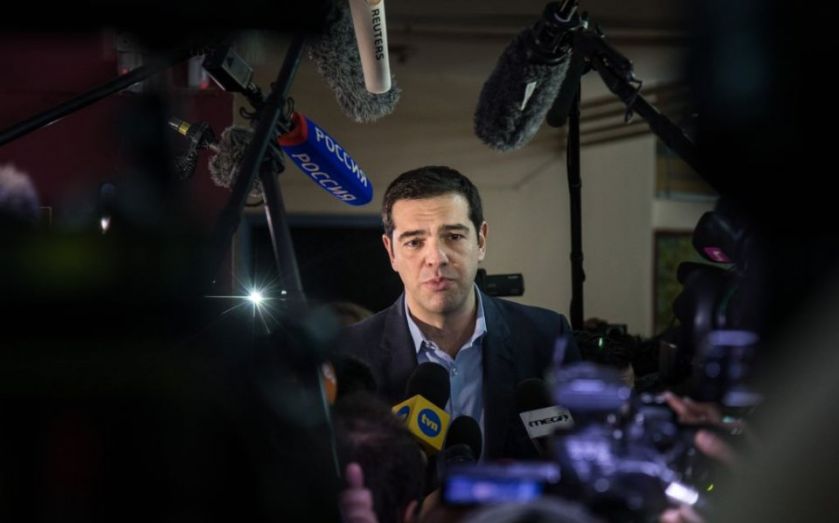Greece elections 2015: Syriza leader Alexis Tsipras set for debt stand-off with EU officials

The new Greek leader Alexis Tsipras is set for a tough set of talks with European officials over Greece’s debt and future bailout arrangements.
Tsipras has made no secret of his desire to renegotiate Greece’s debt, which stands at around 170 per cent of GDP. The government is still borrowing to cover the interest on its debt.
Greek banks also have a credit line with the European Central Bank (ECB). Meanwhile, Greece’s bailout review is coming up which – if successful – grants them a further €7.2bn (£5.3bn).
European finance and economy ministers will discuss their response to the election this afternoon at their regular “Ecofin” meeting.
Syriza may struggle to get the latest instalment of Greece’s bailout. To do so, it needs to satisfy its three creditors – the European Commission, the European Central Bank and the International Monetary Fund (IMF), also known collectively as the troika.
“The IMF had already claimed that the December budget didn’t fully add up. Short of a miracle, it looks rather unlikely that the IMF could ever certify that Greece is now meeting its obligations to the troika in the pending review for the final €7.2bn tranche of the support programme. And without troika approval, support for Greece and its banks could stop shortly,” said economist Holger Schmieding form investment bank Berenberg.
Tsipras also wants to write off some of Greece’s debt. However, the troika is unlikely to agree to such a deal as it could set a precedent for other indebted nations.
Schmieding also points out that Greek tax revenues have fallen in recent weeks due to the anticipation of a Syriza victory, with citizens assuming old taxes may not be enforced once cut as promised. Any stall in negotiations between Greece and the troika is likely to impact the country’s banking system, which is relying on the ECB.
“The mere risk that the ECB may have to pull the plug soon, a move through which the ECB had forced Cyprus into a harsh bailout programme, could spark serious deposit outflows at any time,” Schmiedling said. Jonathan Loynes, an economist at Capital Economics also stressed the need for the new Greek leader to agree a short-term extension on the current plan.
“A period of uncertainty and heightened market nervousness now seems likely. Greece’s current bail-out runs out in February and the country faces heavy debt redemptions over the coming months. So the first challenge is probably to agree some short-term extension of the programme,” Loynes said.